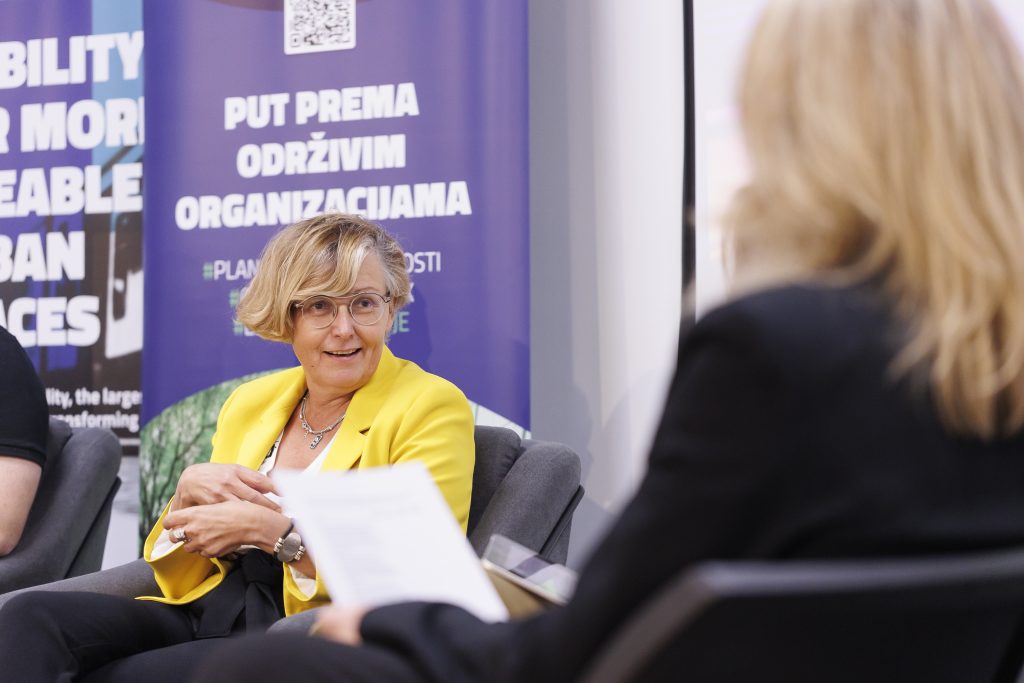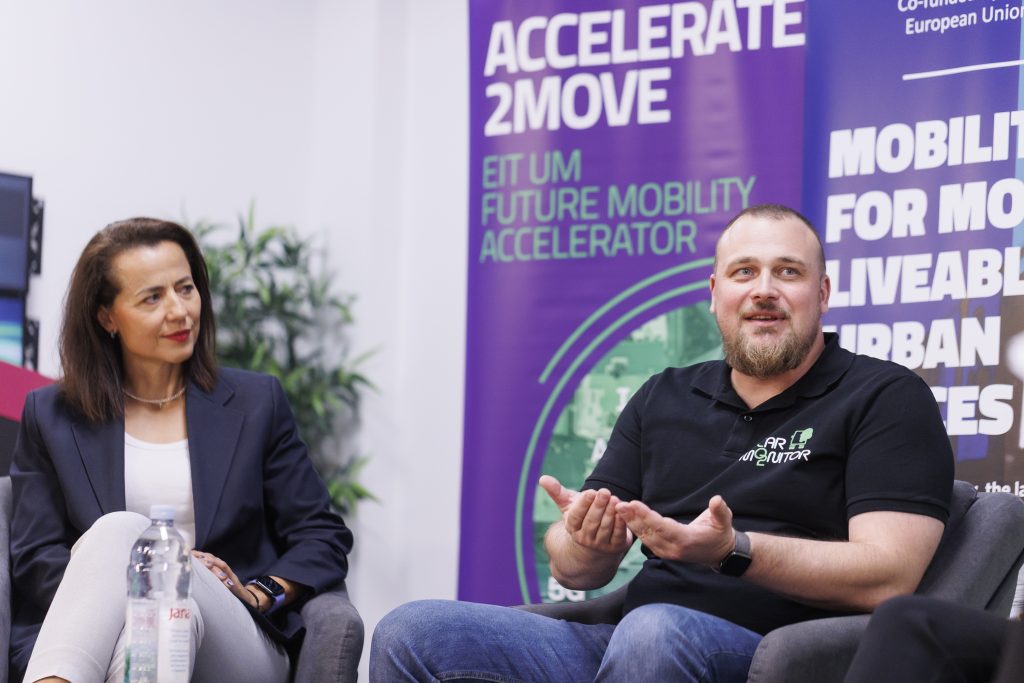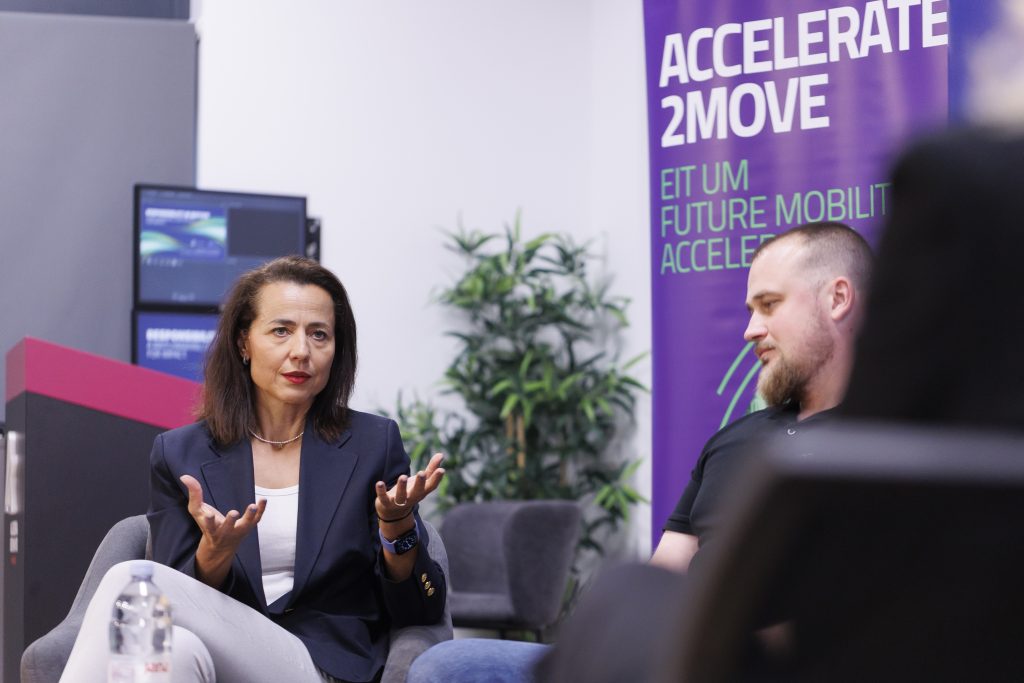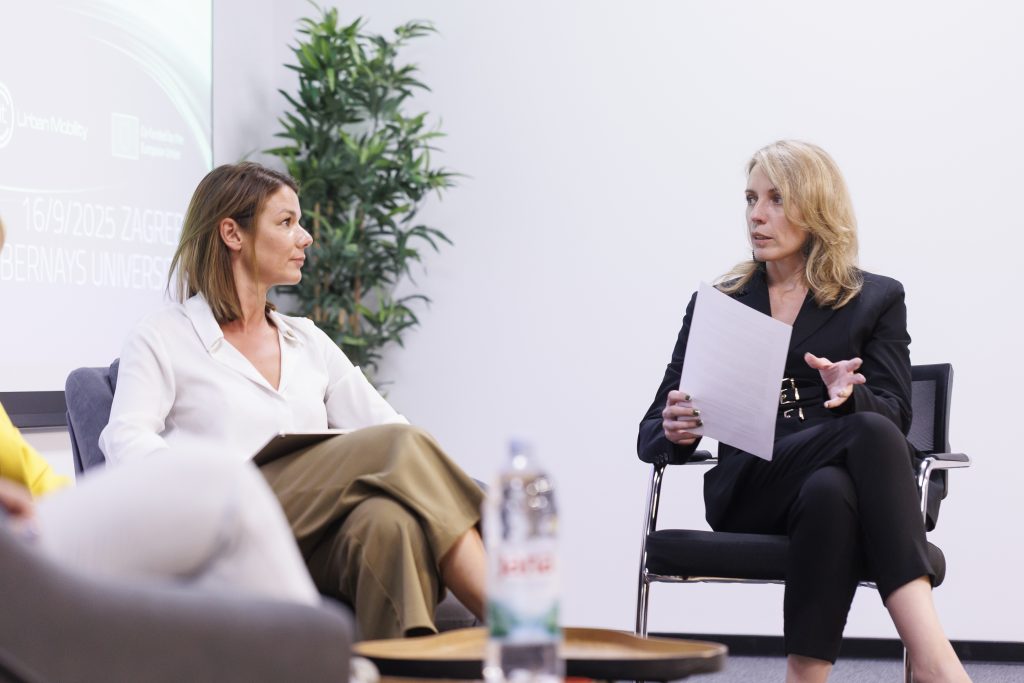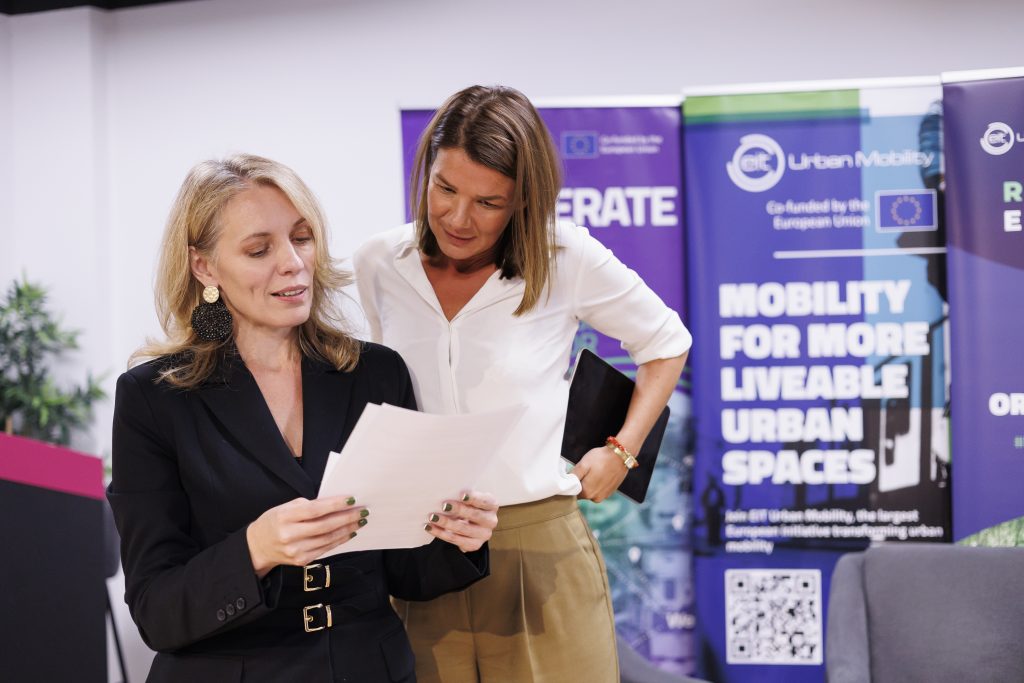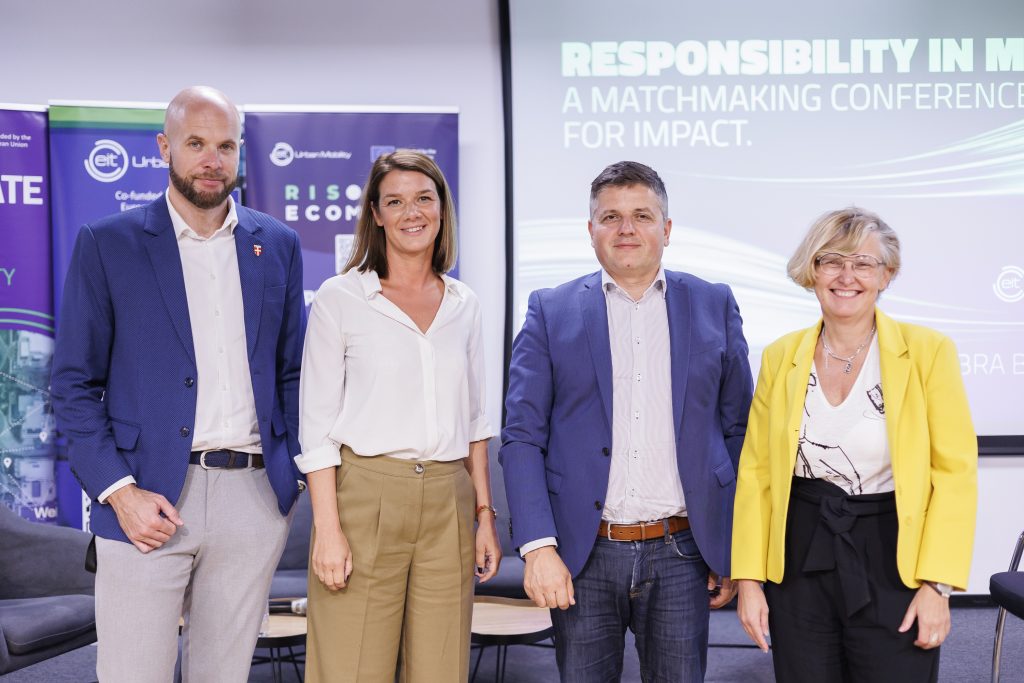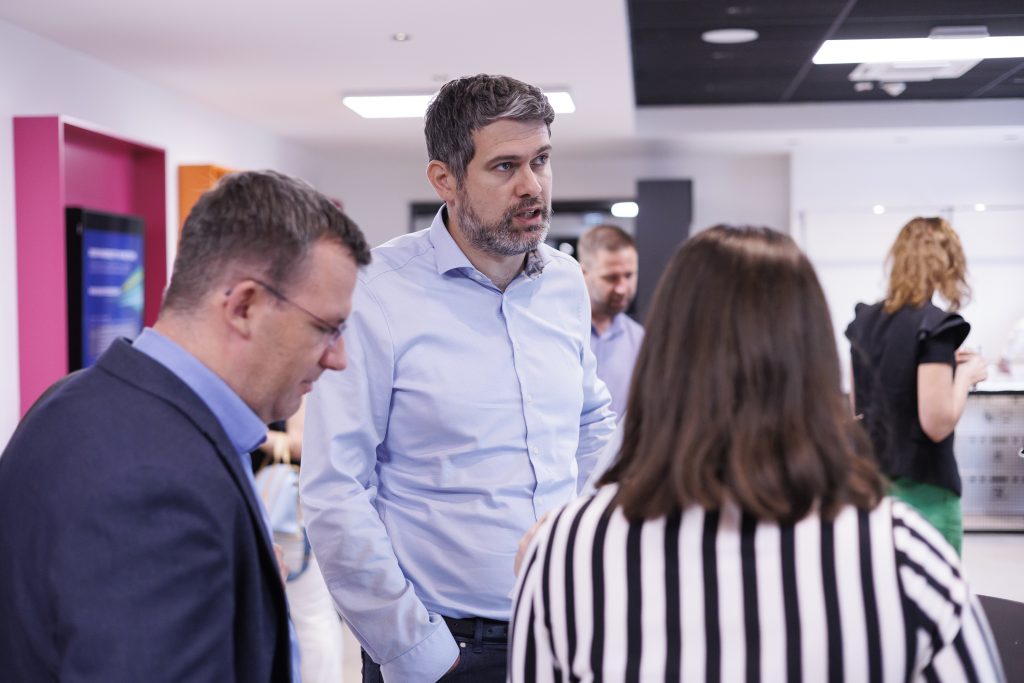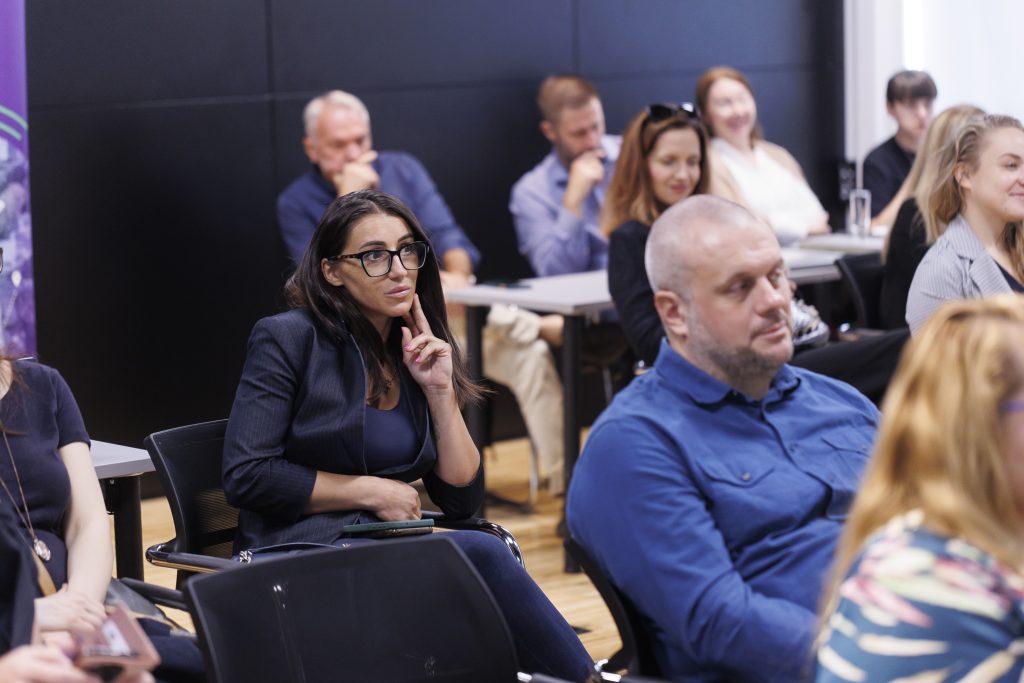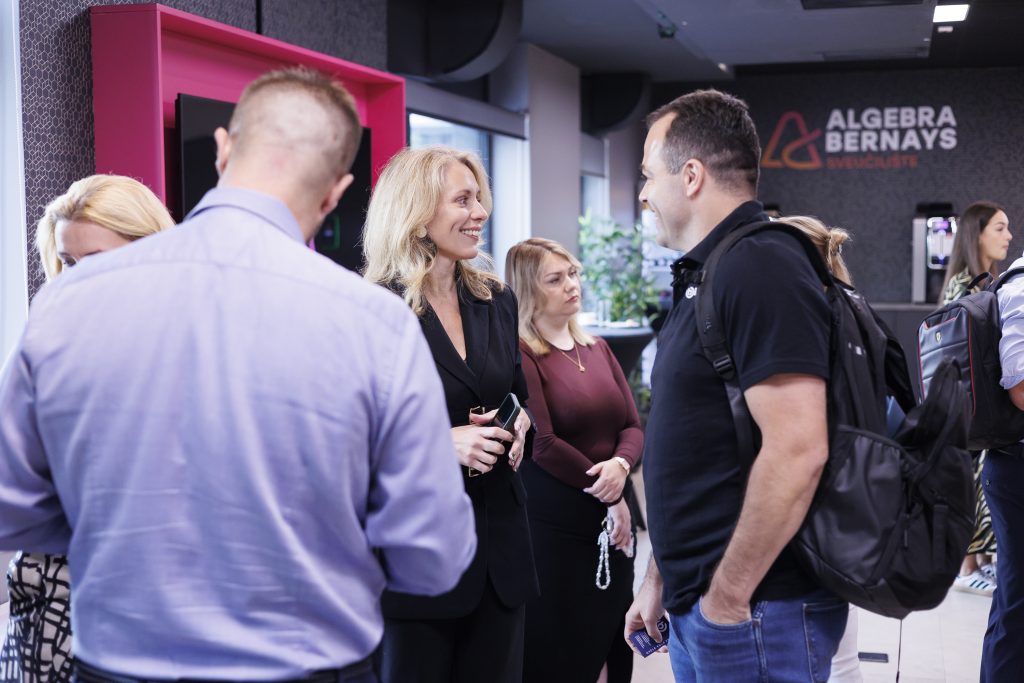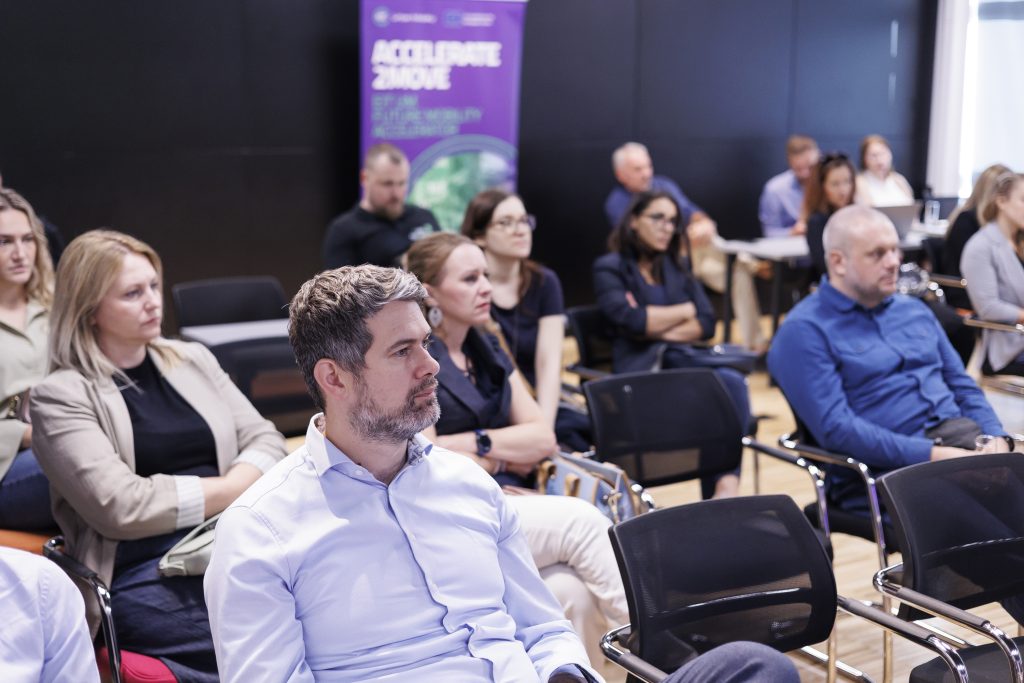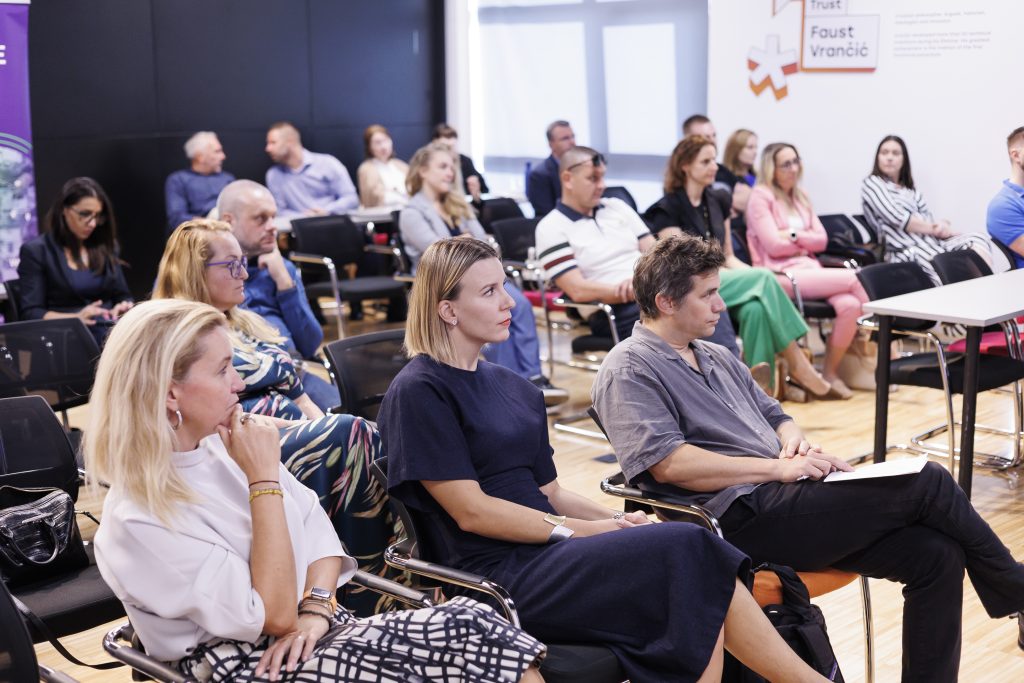Responsibility in Motion: Six Points to Build On
Responsibility for the problems in our urban mobility systems should be shared equally among individuals (whose daily travel choices can be unsustainable), employers and service providers (as traffic generators), and local governments (as providers of infrastructure and regulation).
This premise framed the Responsibility in Motion conference, held on 16 September 2025 in Zagreb. As an outreach event of the RIS ECOMOVE project funded by EIT Urban Mobility, it opened with a panel, “Who should care for corporate mobility?”, moderated by Đuro Gavran, founder of ESG Films. His guests—Martina Đopar from the Croatian Chamber of Economy and Nataša Novaković from the Croatian Employers’ Association—noted that awareness of corporate mobility among Croatian companies remains low. Even when the impacts of employees’ daily commutes are included in mandatory ESG calculations, they are rarely seen as an area where companies can—or should—take action.
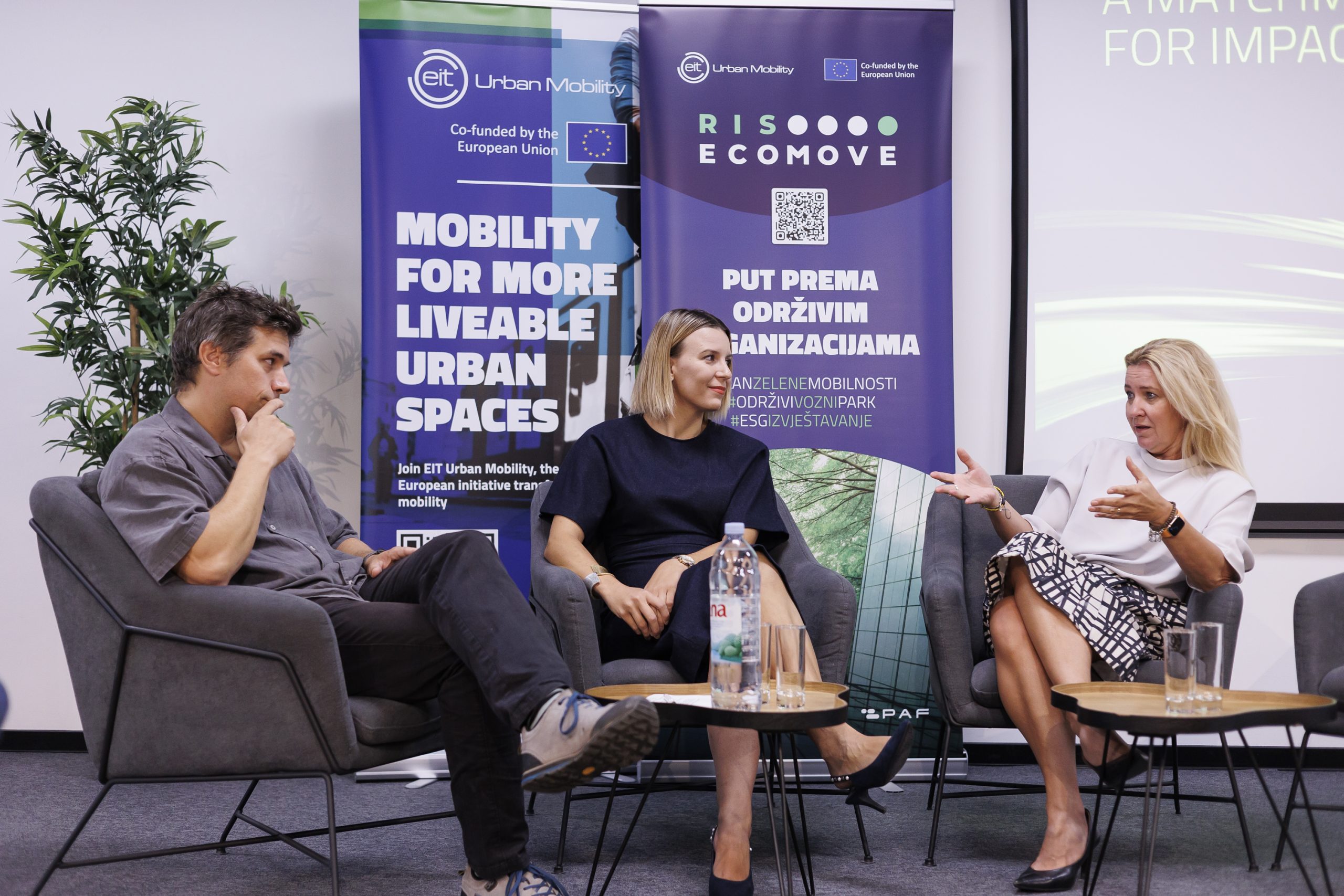
That is why Petra Grgasović (Erkon), Vedran Kirinčić (University of Rijeka – Faculty of Engineering) and Nikolina Markota Vukić (Institute for Corporate Social Responsibility) pitched the key three topics of RIS ECOMOVE: Gren Travel Plans, Corporate Fleet Electrification and Mobility & ESG, as the three key pillars relevant for decarbonising corporate mobility.
These were followed by the three parallel 2-hour workshops, raising awareness on these topics, enabling peer to peer exchange and an open discussion on the existing challenges to move forward.
The representatives of big companies such as Zagrebački Holding, Kaufland, BIPA, Teva, Porsche eBike Performance, Liburnia Riviera Hotels, Podravka, Hospira Zagreb and Verso Altima, but also of the Ministry of Tourism and Sports and the Ministry of EU funds and Regional Development were there, demonstrating their willingness to discuss sustainability topics and lead the way.
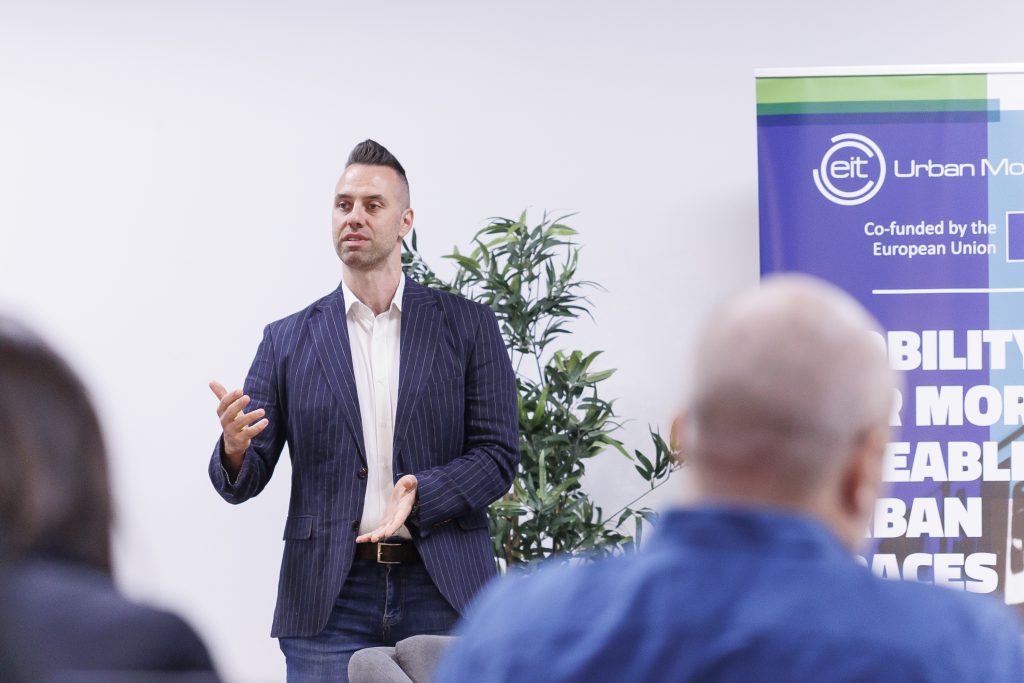

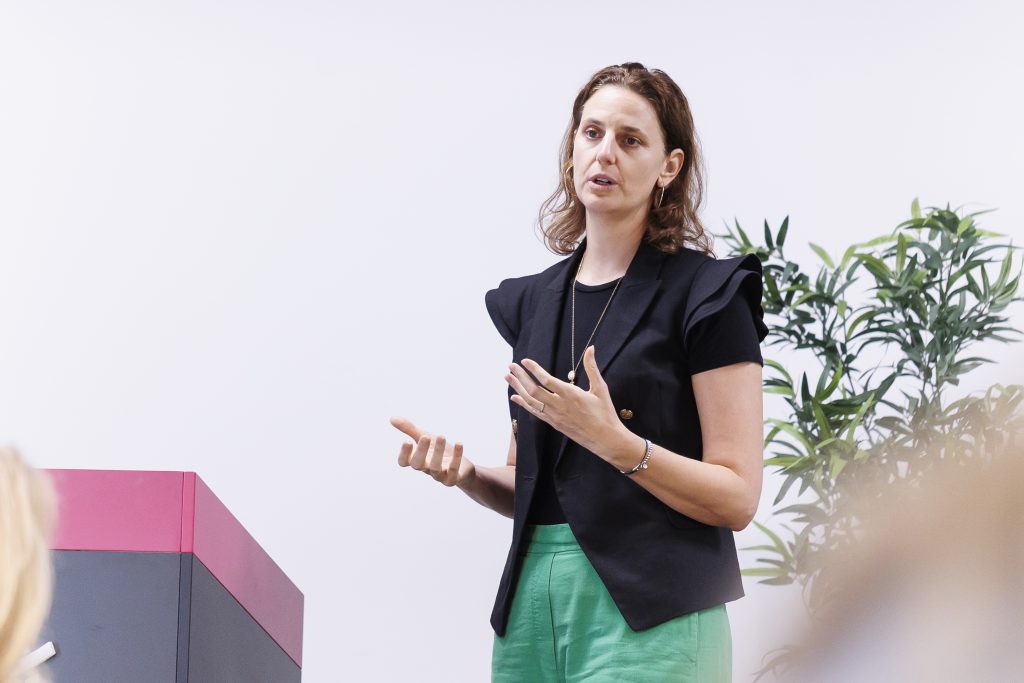
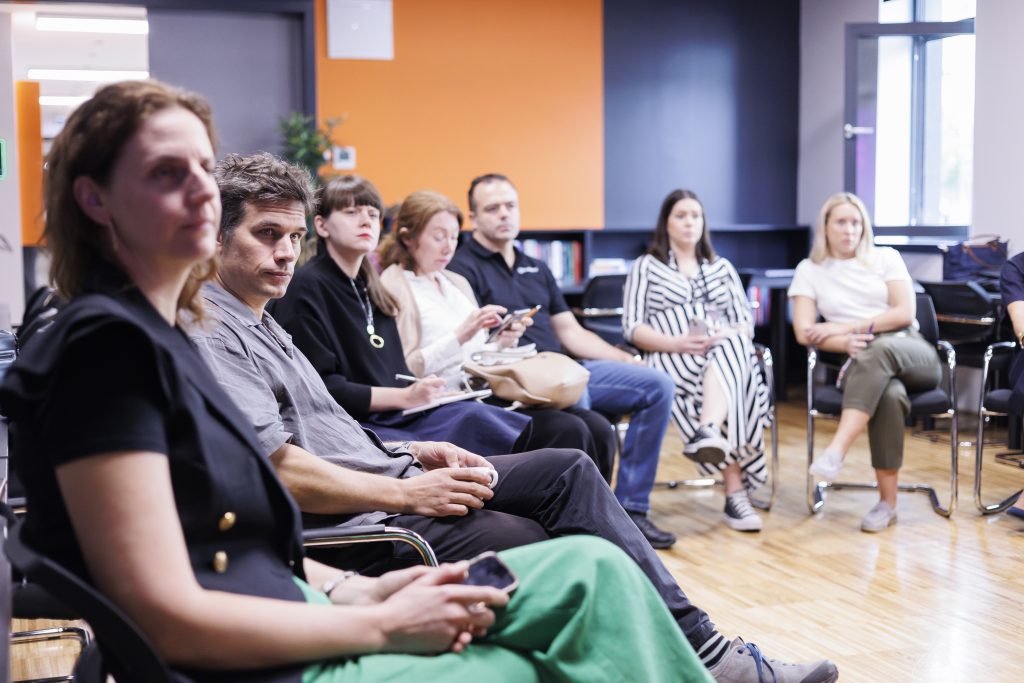
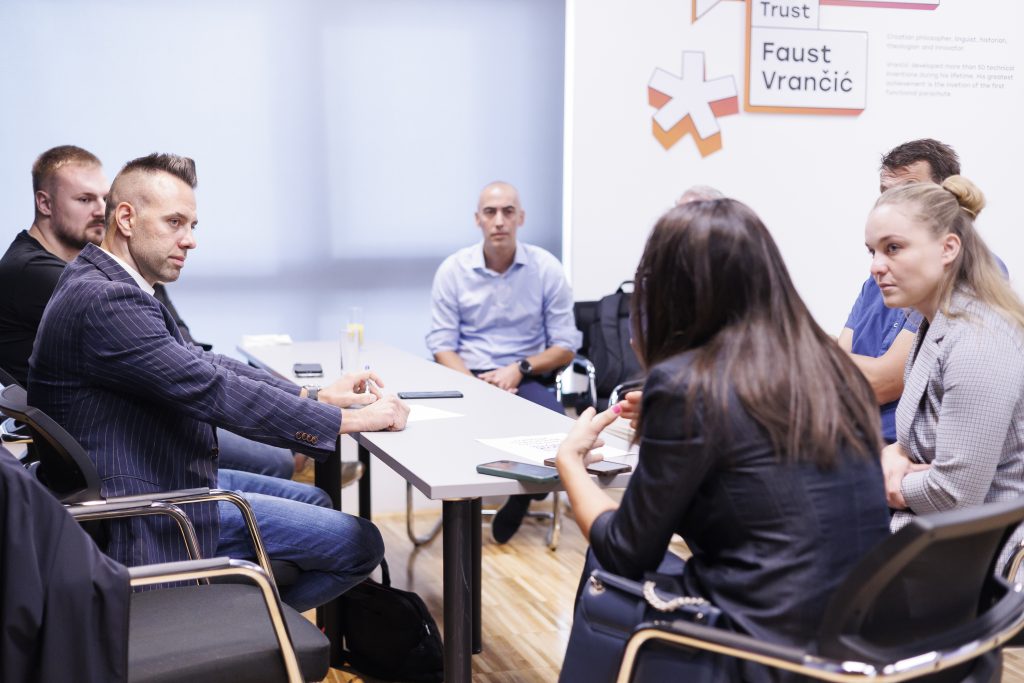

The Innovators' Pitch
The first part of the event was fully dedicated to learning and awareness raising, while the second part was about concrete solutions. Five startups, selected during an open call, pitched in front of the audience and a 5-member jury: Andreja Pavlović (OIKON), Dražen Šimičević (Vienna Business Agency), Helena Matuša (Krapina-Zagorje County Entrepreneurial Centre), Nikola Drašković (Algebra Bernays University) and Sven Harjaček (BIRD incubator). This part of the event was supported by ACCELERATE2MOVE, EIT Urban Mobility accelerator.
Whether they are trying to cut emissions from commuting, electrify fleets, or meet new ESG standards, organisations need solutions that are practical, adoptable, and data-driven. Startups are uniquely placed to test, iterate, and deliver that edge. Bikademy, Project O2, mobilityONE, CarMonitor and StructQ have proven their value and used the opportunity to network.
Project O2, selected by the jury, took the 2.000 euro award, changing the way we perceive corporate mobility and providing a new option for responsible employers.
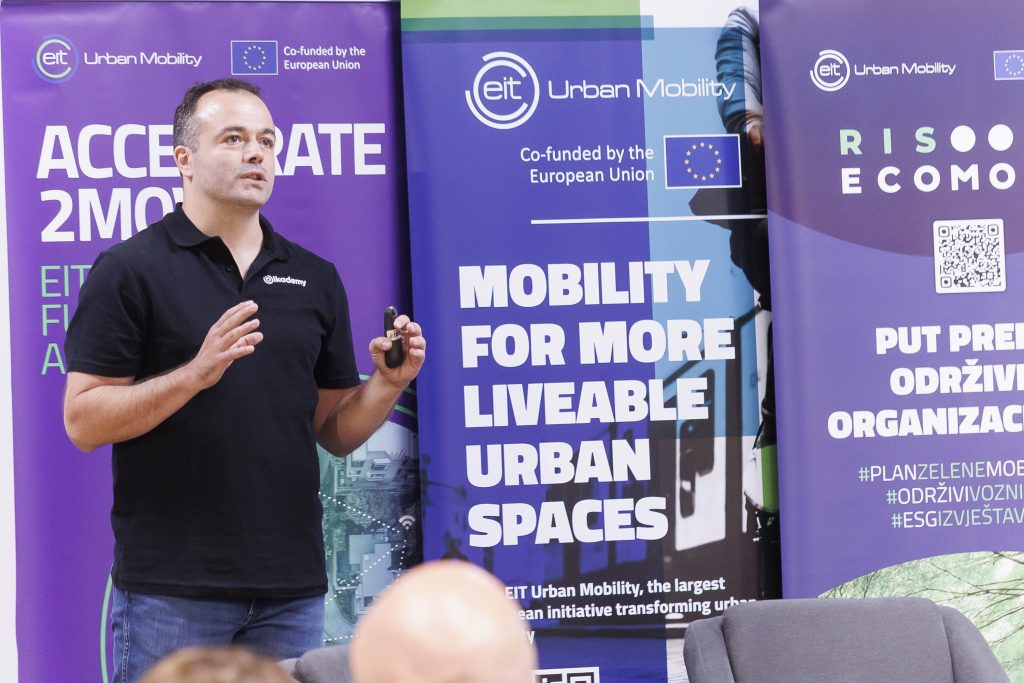
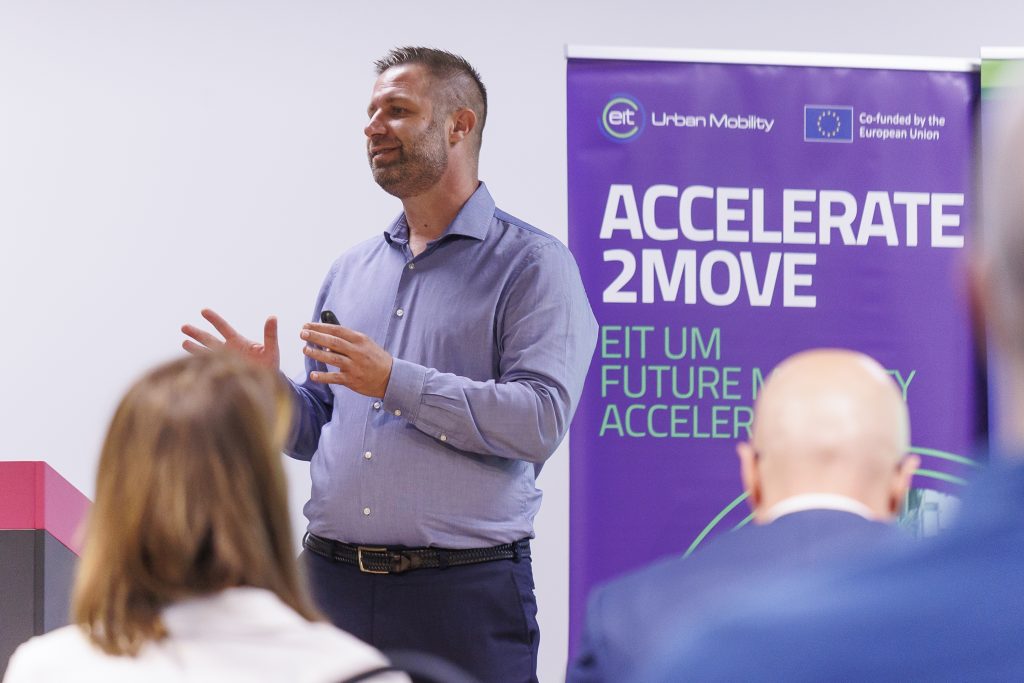
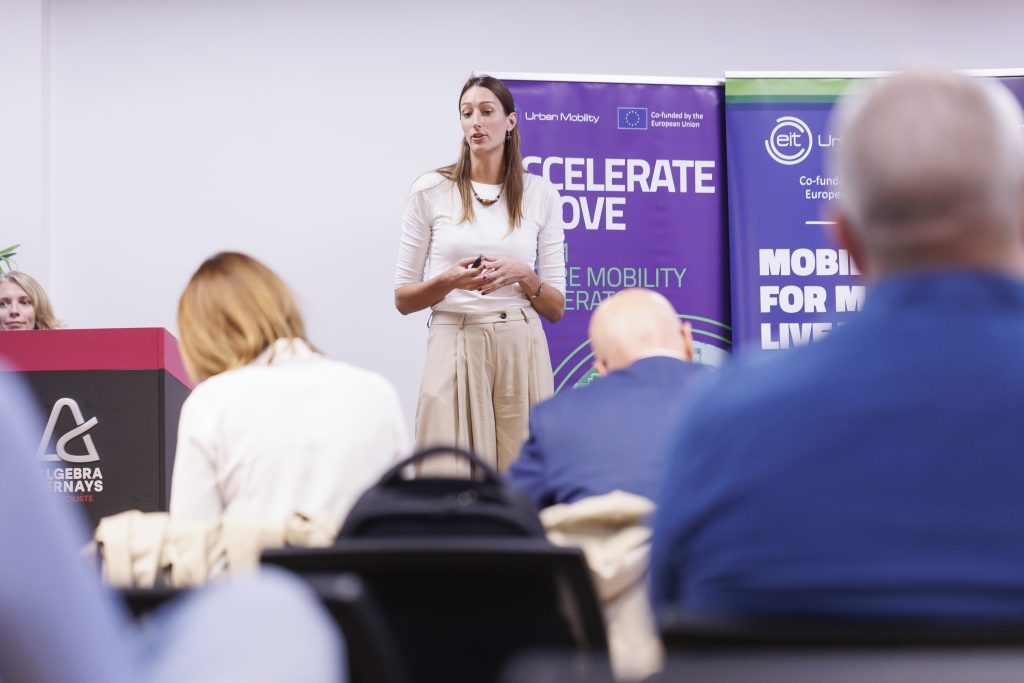
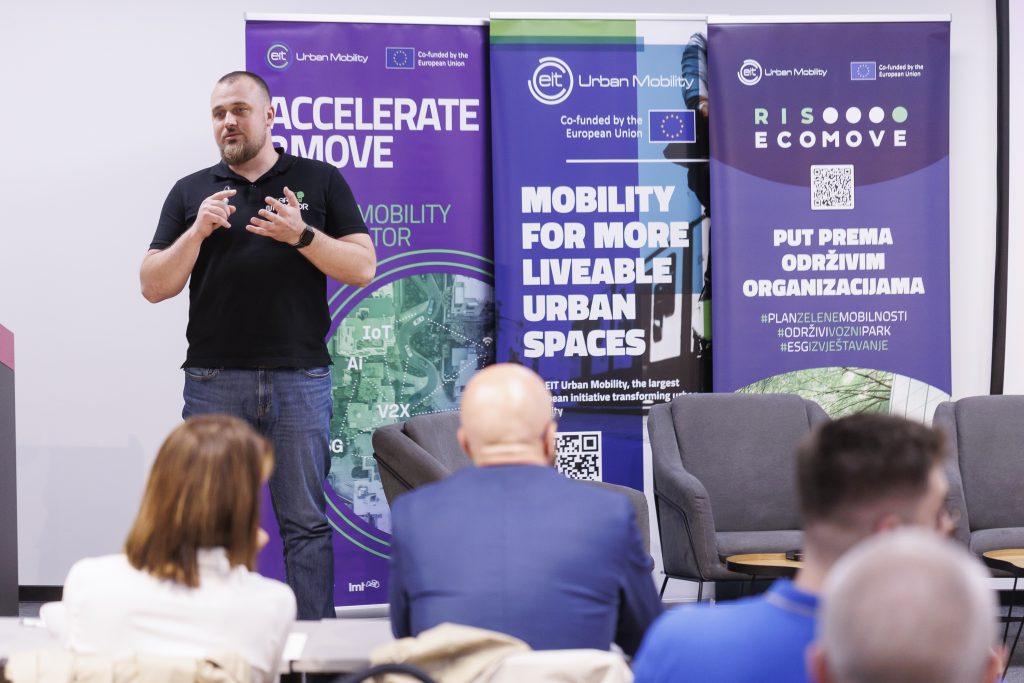
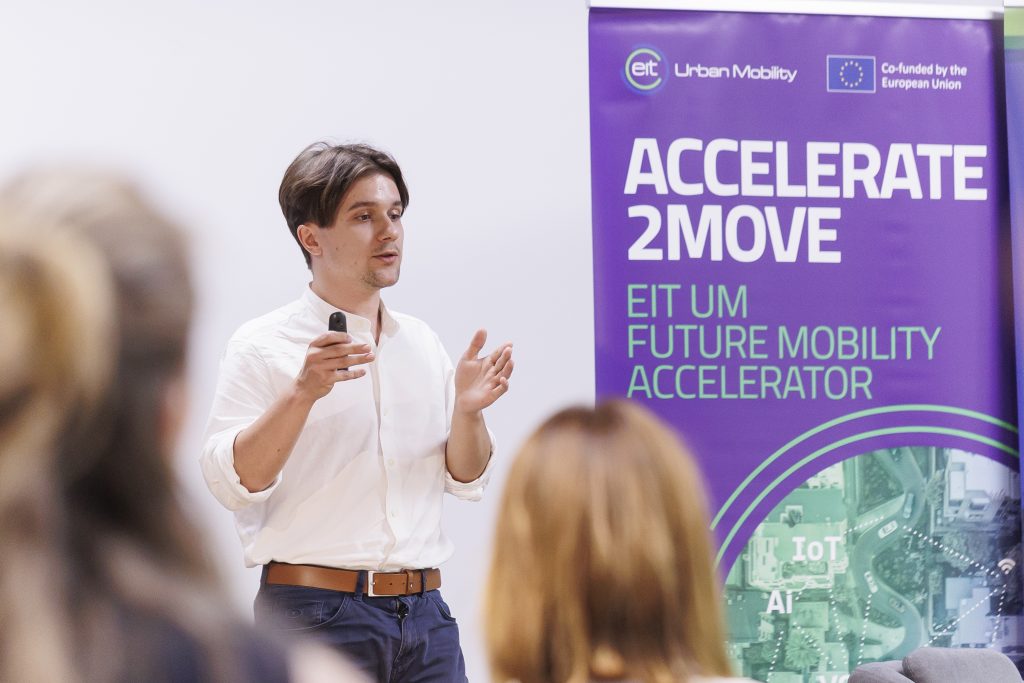
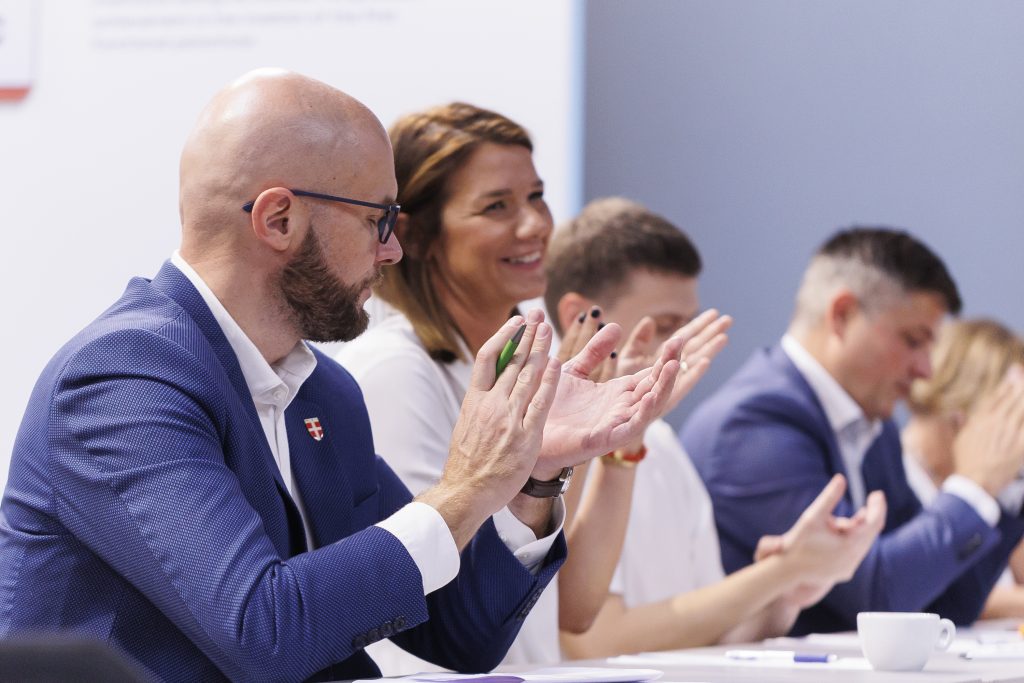
While the evaluators’ scores have been added, a panel on “The Innovation Imperative for CSR” was held, hosting Andreja Pavlović (OIKON), Helena Matuša (Krapina-Zagorje County Entrepreneurial Centre), Vadims Morozovs (CarMonitor) and Anita Knezović (ESG point), focusing on the innovation gaps in the attempts to decarbonise bussines operations of EU companies and the differences in the needs of smaller and big companies.
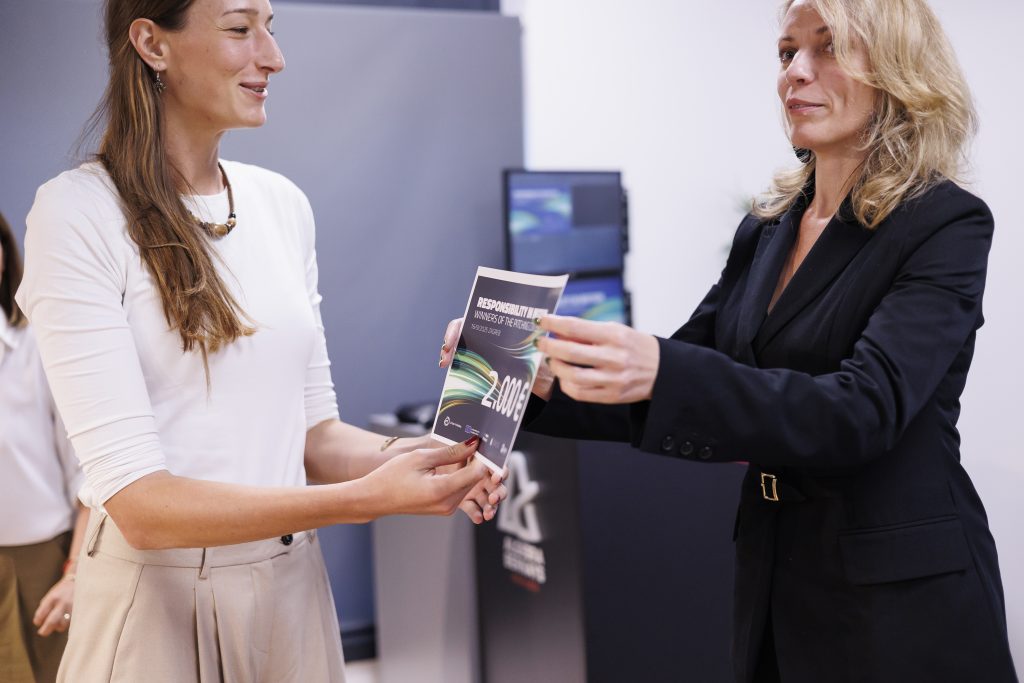
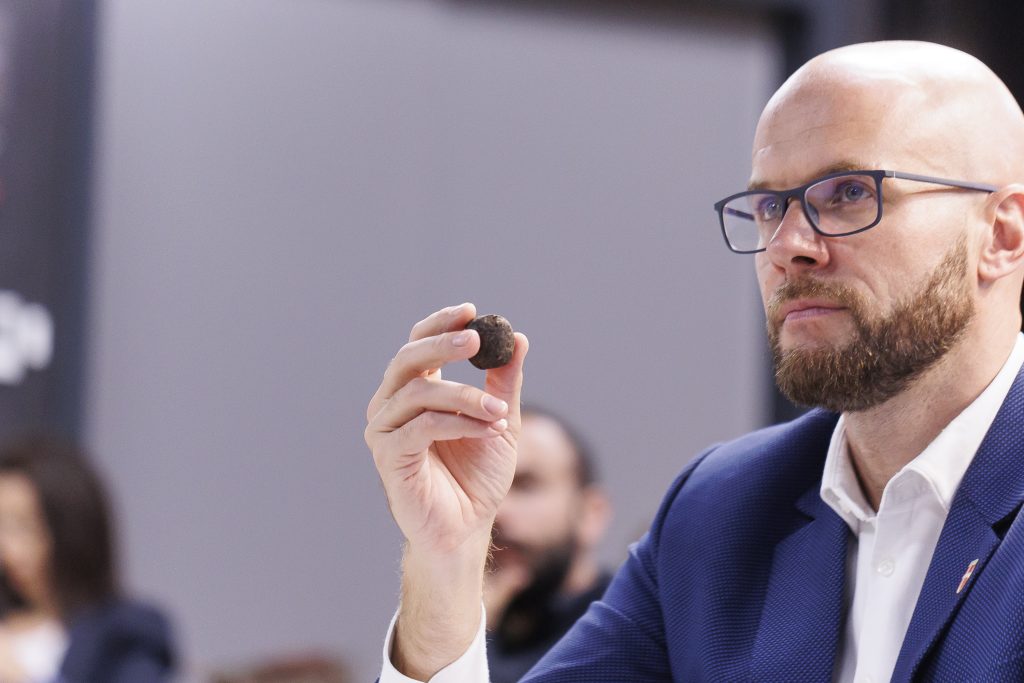
Six points to build on
- First, we’re not “stuck in traffic” — we are the traffic. Our individual choices, aggregated across thousands of trips in and out, create the system we have.
- Second, employers — not just the public sector — can make urban mobility better: through parking rules, incentives, organized transport, flexible working hours, and data-driven travel management.
- Third, solutions aren’t black-and-white. A company car or a monthly PT (public transport) pass — especially where public transport is poor — aren’t the only options. We need a palette of measures: from a “mobility budget,” through bike leasing and carpooling, to shuttles and last-mile solutions.
- Fourth, fiscal policy must encourage sustainable choices — without smart tax and accounting frameworks, it’s hard for employers to change habits at scale.
- Fifth, electrifying mobility isn’t just a technology shift; it’s also a change in how businesses operate. This means planning charging infrastructure, managing energy, optimising fleets, setting vehicle-use policies, and prioritising trips.
- Sixth, ESG reporting on mobility-related emissions only makes sense with reliable data. And collecting and analyzing that data costs time and money — so it should be planned as an integral part of a sustainable business strategy, not as an “add-on.”
